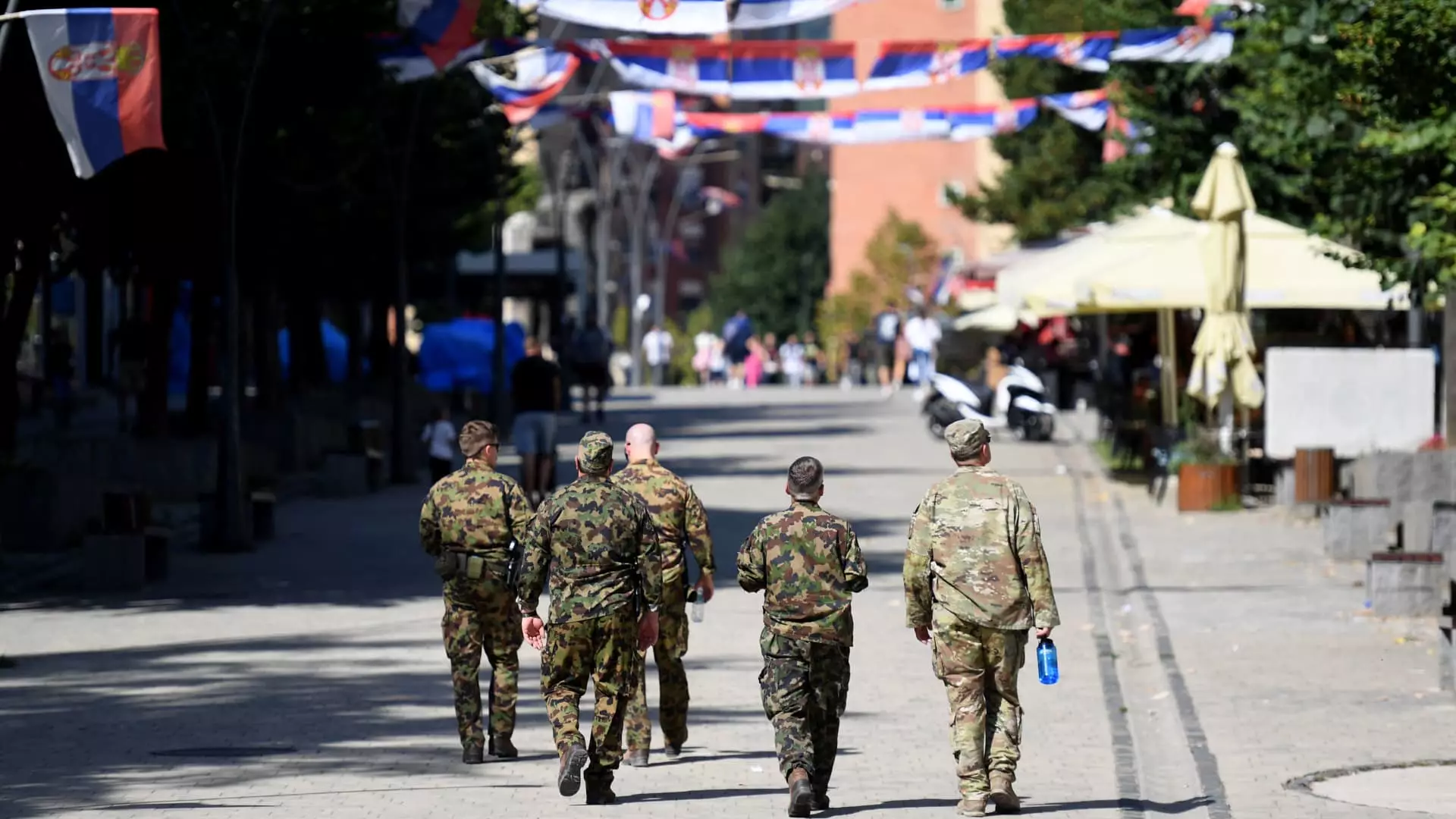As international attention remains fixated on the ongoing conflicts in Israel and Ukraine, an alarming geopolitical issue has been left largely unnoticed. Political analysts argue that the escalating tensions between Serbia and Kosovo pose a serious security threat to both the Balkans and Europe as a whole. Leon Hartwell, a non-resident senior fellow at the Center for European Policy Analysis (CEPA), emphasizes the urgency for heightened vigilance in this region, even though it has remained under the radar of Western media. This diverting focus from the Balkans reflects a significant challenge for policymakers in effectively managing multiple conflicts simultaneously.
When global attention is consumed by new conflicts, the capacity of nations to effectively handle preexisting conflicts becomes strained. It becomes clear that diplomatic and military resources are finite and must be allocated strategically. The Western Balkans, comprising Albania, Bosnia and Herzegovina, Montenegro, Kosovo, North Macedonia, and Serbia, is an area of geostrategic rivalry, attracting influence from Moscow, Brussels, and Washington. Despite efforts by European Union officials to incorporate these countries into the European family, they remain outside the 27-nation bloc. Consequently, tensions between Serbia and Kosovo continue to intensify, adding to the complexity of the regional dynamics.
The recent deadly shootout in Banjska, a northern Kosovan village, marked another critical turning point in the Serbia-Kosovo conflict. This violent incident, which involved a heavily armed group of ethnic Serbs and Kosovo special police forces, was met with deep concern from U.S. and European officials. The ensuing buildup of military forces in the region heightened apprehension about the potential for further escalation. Leon Hartwell warns that the Balkans are a volatile region where minor incidents can easily trigger larger conflicts. The international community’s limited capacity to respond simultaneously to multiple strategic conflicts inevitably results in negative consequences for certain regions.
The Balkans: An Unpredictable tinderbox
The precarious situation in the Balkans has not gone unnoticed by experts in the field. Senior policy fellows at the European Council on Foreign Relations (ECFR) issued a warning last month, likening the dispute between Kosovo and Serbia to a serious security threat for the region and Europe. They emphasized the need for the U.S. and EU to choose stability over the escalation of violence, urging them to acknowledge Belgrade’s role in destabilizing Kosovo and adopt a robust approach to counter it. The unresolved conflict between these two nations has far-reaching implications, with the potential to destabilize the entire region.
Following a bloody conflict between ethnic Albanians and ethnic Serbs in 1998, NATO deployed peacekeeping forces in Kosovo in 1999. This peacekeeping mission continues to this day. However, tensions persist, exacerbated by the 2008 declaration of independence by Kosovo, which Serbia vehemently rejects. The election of nationalist leaders in both countries has further strained relations. Serbian President Aleksandar Vučić, in an interview with the Financial Times, emphasized that Serbian forces have no intention of going to war with Kosovo, as it contradicts the country’s aspirations to join the EU. It is crucial to acknowledge that the Balkans, despite its relatively small scale, demands a strategic commitment from international actors.
Leon Hartwell underscores the significance of collaboration among the United States, European Union, and the United Kingdom in effectively influencing the Balkans. When these entities join forces, they have the capacity to make a substantial difference in the region. However, the current circumstances require a reevaluation of priorities and the allocation of resources. The neglected conflict between Serbia and Kosovo necessitates immediate attention and proactive efforts to prevent a further deterioration of the situation.
The intensifying tensions between Serbia and Kosovo are an overlooked security challenge. The diversion of international attention to other conflicts has diminished the focus on this volatile region. Policymakers face the daunting task of managing multiple conflicts while preserving strategic stability. It is imperative for the international community to recognize the gravity of the situation and commit the necessary resources to address the unresolved conflict between Serbia and Kosovo. Only through collective effort can lasting peace and stability be achieved in the Balkans and Europe as a whole.


Leave a Reply